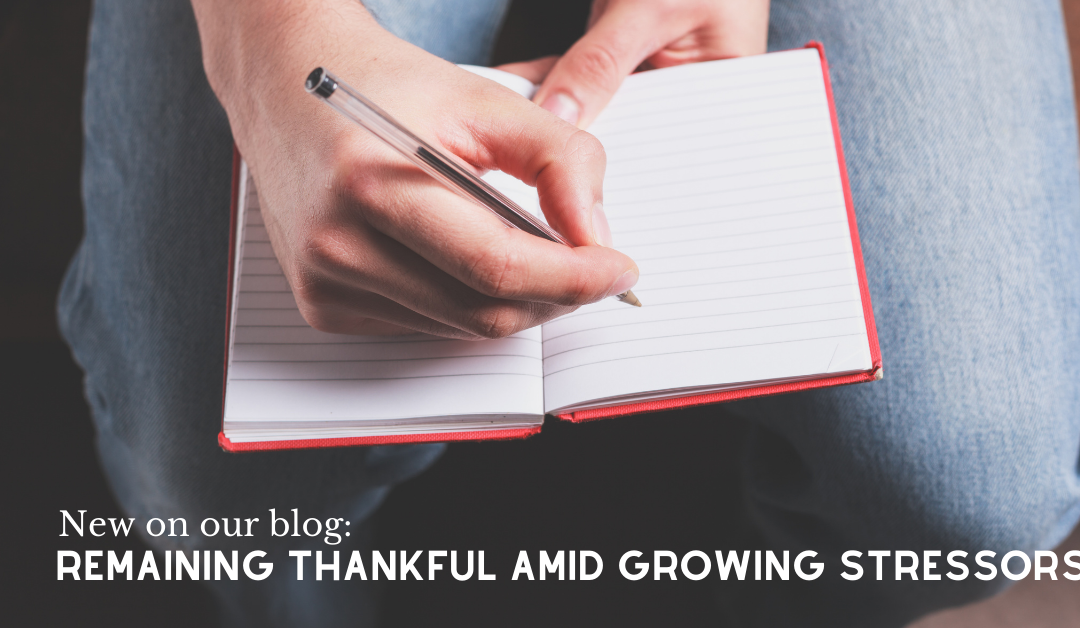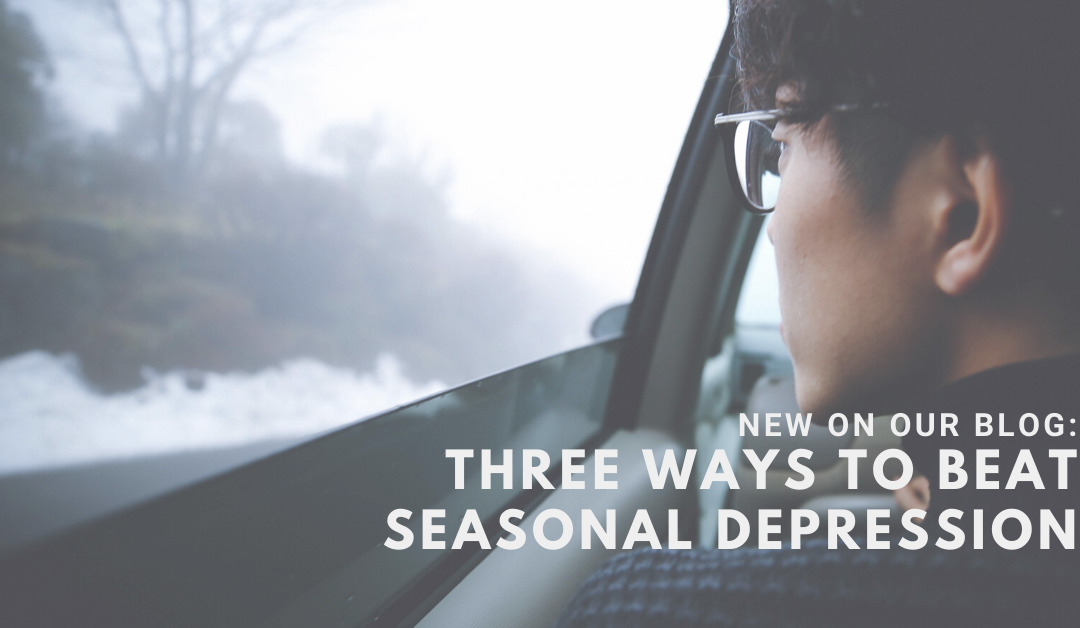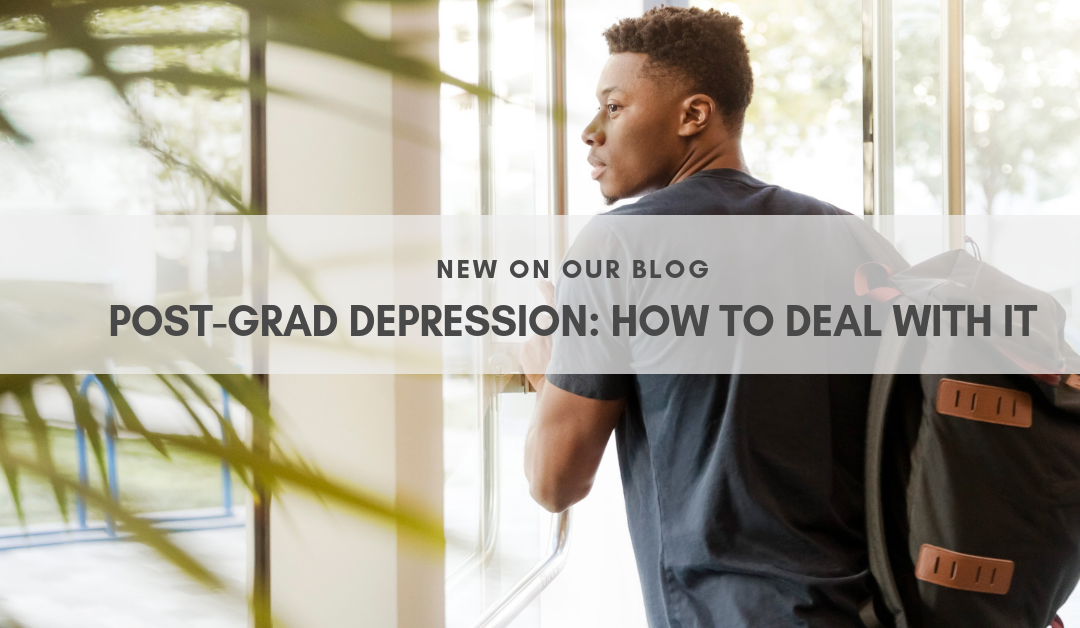
by Sara Hart | Nov 25, 2020 | Blog
Remaining thankful amid growing stressors in a year like 2020 can feel like you are swimming upstream – we understand. Among racial unrest, high unemployment, catastrophic weather, a stressful election season and a pandemic, tensions were high this year. Did you know that being mindful and showing gratitude in times of stress and disaster has scientifically proven to help your mental and physical health? We encourage you to choose gratitude this holiday season, as allowing yourself to have a grateful mind can positively impact your mental health and well-being. Here’s how to get started!
Remember the difficult times
Although this may seem counterintuitive, there’s a helpful thought process behind it. Think back to tough times in your life. Then, remember that you are still here. You’ve made it through stressful events, but here you stand – on the other side of it all. You’re stronger than you think.
Reframe your situation
While it’s important to remember that we shouldn’t ignore or deny pain during difficult times, we can reframe the way we approach the way we view situations. A new, fresh perspective on various aspects of life can jolt us into a better mindset. You might not be in charge …

by Sara Hart | Dec 19, 2019 | Blog
The winter months are usually considered a time of happiness and joy, but for some, it can be a tough period of time to get through. Whether you’re battling anxiety over having to socialize during the holidays, depression over thoughts of a loved one you’ve recently lost, etc., know that you’re not alone. Seasonal Affective Disorder can cause a change in your mood, appetite or sleeping habits, and it’s extremely common during the colder, darker winter months. Below, we offer a few tips on how to overcome seasonal depression.
Spend time in the sun
Take at least a few minutes every day to spend time outdoors or sit near a window. Bright light – both natural and artificial – can improve health outcomes, such as depression and anxiety. So, take a walk when it’s sunny out or purchase sunlight imitators for those dreary days.
Stay active
Although it may be hard to leave your warm bed during the winter, consider partaking in winter sports, holiday shopping with friends or sightseeing to improve your mood. Exercise is a great way to produce endorphins, which trigger positive feelings. Find positive activities that will help you express and control your emotions.
Set limits…

by Sara Hart | Aug 13, 2019 | Blog
It’s common to experience fear when you decide to begin therapy sessions. At first, you may feel uncomfortable speaking about personal issues with someone you don’t know. While fear is a natural emotion, it can be confronted by reframing your anxious thoughts. Below, we offer a few tips on how to overcome your doubts about speaking with a professional clinician.
Decide what you’d like from your clinician.
From the get-go, be open and honest with your clinician about what you need from the session. Do you want someone who will offer advice? Listen silently? Would you like the conversation to be casual or feel more like you’re speaking with an expert? If you express your needs from the beginning, the clinician can then guide the session accordingly. Clinicians will work with you to better understand your needs and help you through life’s struggles.
You don’t have to go into it alone.
If speaking to a professional in a one-on-one setting scares you, you might find comfort in group therapy. In this environment, it’s up to you if you want to share your feelings or just simply listen to others, all of whom are working to navigate similar challenges. Depending on …

by Sara Hart | Jul 16, 2019 | Blog
From kindergarten through college, school is one of the main constants in a young adult’s life. Even though exams, projects and homework can be overwhelming and stressful for students, attending school provides a structure and potential support system that some people may not realize they depend on. And once graduation time hits, it can be intimidating to enter the “real world.” With stressors such as debt, job searching and social media expectations surrounding post-graduation, the transition can be challenging and can lead to feelings of anxiety and depression. Fortunately, every step along the way can be taken in stride – if equipped with the correct mindset.
Below are a few tips and words of encouragement to help conquer the battle that post-grad depression brings.
Recognize the risks of social media
Social media creates the facade that everyone is living the perfect life, which produces feelings of envy and anxiety in most young adults. Comparing yourself to others online can be damaging to your mental health. Know that social media only shows the highlight reels, and the hard times simply aren’t shared. Try giving your friends on social media a call instead. You may learn that they are experiencing similar problems, …

by Sara Hart | May 17, 2019 | Blog
It’s not easy knowing there are some aspects of life where we have limited or no control. And, learning how to accept life’s curveballs can be extremely difficult. Just know – feeling overwhelmed by these circumstances is completely understandable, and finding ways to help manage how you cope with these situations can lead you to live a happier, healthier life. Below are steps you can take to cope with things beyond your control.
Determine what you are able to control
When something happens that’s out of your control and it makes you uncomfortable, shift your focus to what you can control – your perception. A new, fresh perspective on various aspects of life can jolt us into a better mindset. You might not be in charge of a situation, but you can certainly dictate your own attitude, reaction and plan of action moving forward. A great way to start is by adopting positive behavioral habits, such as writing your feelings down on paper.
Focus on the present
Most anxieties come from things we can’t change (the past) or things we can’t predict (the future). Try to shift your mindset to focus on the present. Overthinking can be debilitating – use …





